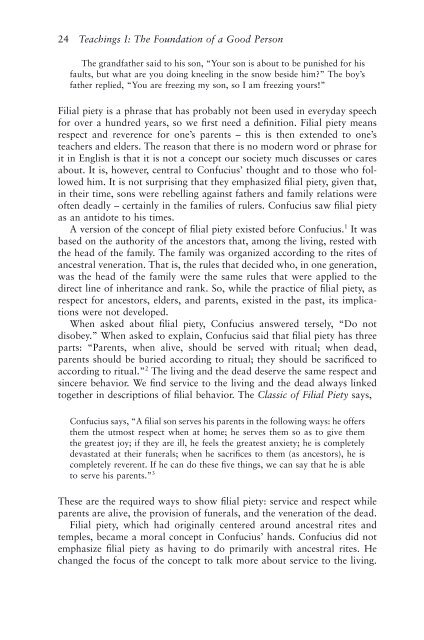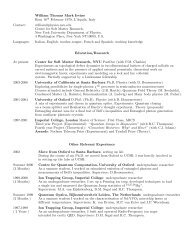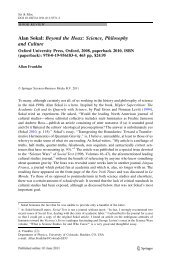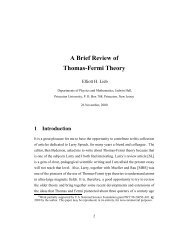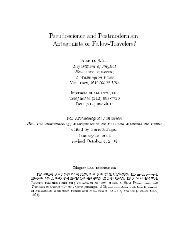Good Confucianism book (pdf) - Department of Physics
Good Confucianism book (pdf) - Department of Physics
Good Confucianism book (pdf) - Department of Physics
Create successful ePaper yourself
Turn your PDF publications into a flip-book with our unique Google optimized e-Paper software.
24 Teachings I: The Foundation <strong>of</strong> a <strong>Good</strong> PersonThe grandfather said to his son, “ Your son is about to be punished for hisfaults, but what are you doing kneeling in the snow beside him? ” The boy ’ sfather replied, “ You are freezing my son, so I am freezing yours! ”Filial piety is a phrase that has probably not been used in everyday speechfor over a hundred years, so we first need a definition. Filial piety meansrespect and reverence for one ’ s parents – this is then extended to one ’ steachers and elders. The reason that there is no modern word or phrase forit in English is that it is not a concept our society much discusses or caresabout. It is, however, central to Confucius ’ thought and to those who followedhim. It is not surprising that they emphasized filial piety, given that,in their time, sons were rebelling against fathers and family relations were<strong>of</strong>ten deadly – certainly in the families <strong>of</strong> rulers. Confucius saw filial pietyas an antidote to his times.A version <strong>of</strong> the concept <strong>of</strong> filial piety existed before Confucius. 1 It wasbased on the authority <strong>of</strong> the ancestors that, among the living, rested withthe head <strong>of</strong> the family. The family was organized according to the rites <strong>of</strong>ancestral veneration. That is, the rules that decided who, in one generation,was the head <strong>of</strong> the family were the same rules that were applied to thedirect line <strong>of</strong> inheritance and rank. So, while the practice <strong>of</strong> filial piety, asrespect for ancestors, elders, and parents, existed in the past, its implicationswere not developed.When asked about filial piety, Confucius answered tersely, “ Do notdisobey. ” When asked to explain, Confucius said that filial piety has threeparts: “ Parents, when alive, should be served with ritual; when dead,parents should be buried according to ritual; they should be sacrificed toaccording to ritual. ” 2 The living and the dead deserve the same respect andsincere behavior. We find service to the living and the dead always linkedtogether in descriptions <strong>of</strong> filial behavior. The Classic <strong>of</strong> Filial Piety says,Confucius says, “ A filial son serves his parents in the following ways: he <strong>of</strong>fersthem the utmost respect when at home; he serves them so as to give themthe greatest joy; if they are ill, he feels the greatest anxiety; he is completelydevastated at their funerals; when he sacrifices to them (as ancestors), he iscompletely reverent. If he can do these five things, we can say that he is ableto serve his parents. ” 3These are the required ways to show filial piety: service and respect whileparents are alive, the provision <strong>of</strong> funerals, and the veneration <strong>of</strong> the dead.Filial piety, which had originally centered around ancestral rites andtemples, became a moral concept in Confucius ’ hands. Confucius did notemphasize filial piety as having to do primarily with ancestral rites. Hechanged the focus <strong>of</strong> the concept to talk more about service to the living.


